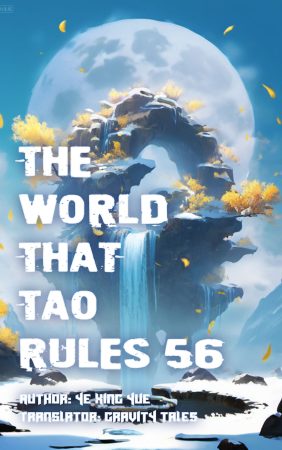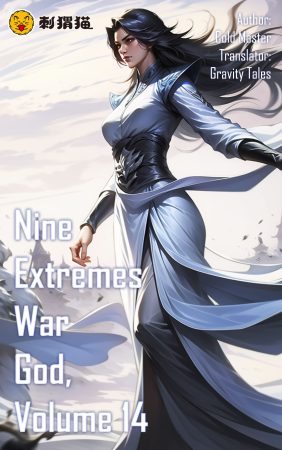Chapter 439
Our Discord Server: https://discord.gg/PazjBDkTmW
You can buy coins here to unlock advanced chapters: https://gravitytales.com/coins-purchase-page/
Chapter 439: Extensive and Discerning
The history of the Eastern world is enigmatic, steeped in tales that echo familiar patterns yet diverge in profound ways.
There’s a common saying: history teaches us nothing. But when it comes to Chinese history, this sentiment doesn’t quite ring true.
In ancient times, scholars from the Yangming School and beyond delved into the past, interpreting and reinterpreting ancient ideas to align with current challenges. The foundations of feudal dynasties rested on Confucian rituals, where emperors acted as paternal figures and officials as dutiful children.
When crises arose, intellectuals sought new perspectives, giving rise to schools of thought like Xin Xue and Li Xue. Yet, viewed through the lens of the present, much of what they believed seems flawed.
The divergence between the historical Ming Dynasty and its counterpart in this world began during Emperor Jiajing’s reign. Unlike the historical ruler, who dabbled in immortality for appearances, this Jiajing genuinely pursued it. Fifty years of cultivation granted him enlightenment and an extended life. Abandoning his immortal ambitions, he immersed himself in historical study, introduced materialist perspectives to the Hanlin Academy, and profoundly altered the empire’s trajectory.
Subsequent emperors, influenced by Jiajing’s ideas, carried the Ming legacy for 500 years. This longevity allowed for numerous intellectual renaissances. Civilizational development, while distinct from modern China’s advancements, incorporated ancient values into a dynamic system that felt both progressive and archaic.
One notable success of the Ming Country was land ownership reform. Land belonged to the state, with public ownership at its core. Although scholar-officials could maintain control for a generation or two, eventual redistribution ensured the system’s integrity.
This reform was achieved through immense struggle, bloodshed, and generational effort, involving both top-down decrees and grassroots movements.
The Ming Country’s top educational institutions, the Academy and the Imperial College, flourished as centers of learning. Over time, their intellectual pursuits mirrored ancient schools of thought but were refined by modernization.
Fields of study became specialized: medicine, law, commerce, and more emerged as distinct disciplines. Confucianism transitioned to a foundational subject, studied broadly to reconcile historical disputes.
One of the more niche fields, the School of Diplomacy, produced sharp-tongued strategists like Wang Yu. Yet, employment prospects for such scholars were often limited unless they pivoted to economics or finance. Diplomacy thrived in turbulent times, as exemplified by the chaos in the Ten Thousand Demon Kingdom.
The Zongheng family, renowned for their lineage of Ghost Valley Masters, played a vital role in navigating these complexities.
The Ghost Valley Master, a hereditary title, symbolized wisdom, connections, and unparalleled strategic acumen. However, the selection process for each successor was grueling, often intertwined with the chaos of the Ten Thousand Demon Kingdom’s tumultuous history.
“My senior siblings ventured into the Ten Thousand Demon Kingdom nearly a decade ago,” Wang Yu said wistfully. “I was too young then, and the elders decided I should stay behind—just in case none of them returned.”
“Can I hear these stories without paying?” Bai Wei teased.
Wang Yu chuckled. “Of course. They’re not exactly secrets. The Ten Thousand Demon Kingdom is a mess, with alliances and betrayals shifting constantly. Many Ming scholars infiltrated, some succeeding, others fueling the chaos further. The disintegration following the Demon Emperor’s death speaks volumes about our influence.”
Bai Wei frowned, pondering the weight of Wang Yu’s words. He disliked politics and the cyclical rise and fall of dynasties. Yet, he understood that the Ming Country’s quiet observation of the Ten Thousand Demon Kingdom’s decline wasn’t coincidental.
Resources dwindled, trade
deficits grew, and the
fractured nation’s reliance on
raw material exports
highlighted its weakness. This
instability benefited the Ming
Country, which watched and
waited, allowing strategists to
sow further discord.
No country, after all, desires to
see its neighbors grow
stronger unchecked.
As their conversation
deepened, Wang Yu handed
Bai Wei a green feather
encased in a roulette, its
needle pointing unwaveringly
in a single direction.
“This will lead you to my
second senior sister, Nalan
Jinghuai,” Wang Yu said. “She’s
currently in Liuzhou.”
“Understood,” Bai Wei replied.
“One more thing,” Wang Yu
added with a smirk. “She’s
married and in her thirties.
Don’t get any ideas.”
“Wait, what do you mean by
that?” Bai Wei asked,
bewildered.
Wang Yu simply shrugged,
leaving Bai Wei with more
questions than answers.












